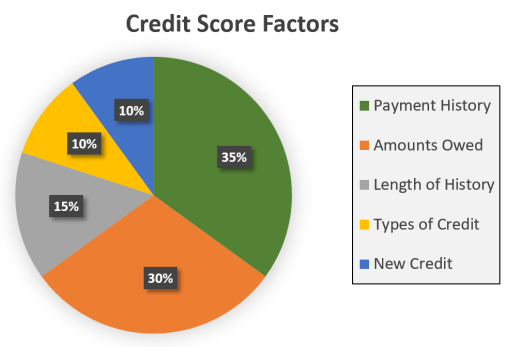Overview of Tax Day
Tax Day is approaching quickly. You may ask ‘what is Tax Day’? Tax Day is the day in which individual income tax returns are due to be submitted to the federal government. This year the tax deadline is April 18, 2023. As this time of year can be a hassle, the more prepared you are the smoother and more successful your filing process will be. Proper preparation includes knowing your filing status (single, married filing jointly, married filing separately, etc). Also, analyzing your situation and determining if you need to file taxes. Whether you need to file taxes or not depends on your income, filing status, age, and whether you fall under a special circumstance. For example, U.S citizens under the age of 65 filing single with a gross income of less than $12,950 are not required to file their taxes. Even if you are not required to file, you may still want to file for tax credits and other benefits. Finally, having all your personal information and tax forms sorted out can help your filing process.
What documents do I need?
- Personal and Dependents Information
- Social Security Number or tax ID number
- Identity Protection PIN (if issued by the IRS)
- Routing and account numbers to receive refund via direct deposit or to pay due balance
- Sources of Income
- Employed: Form W2
- Unemployed: Form 1099-G
- Self Employed:
- Forms 1099 (NEC and other types)
- Schedules K-1
- Records of all business expenses—receipts, credit card statements, etc.
- Business asset use information (costs, dates of use, etc.)
- Any other sources of income: rental, retirement, savings and investments, state tax refund, prizes and awards (some of these sources provide 1099s)
- Education expenses
- Tuition Statement: Form 1098-T
- Student Loan Interest Statement: 1098-E
- Savings contributions
- IRA contributions: Form 5498
- HSA contributions: Form 5498-SA
There are many different forms that fit all possible situations, listed above are a few common source of income and education expense forms that you could receive when it’s time to file. For all forms and more information on the different forms that may apply to you visit https://www.irs.gov/forms-instructions-and-publications.
What are tax credits and deductions?
Tax credits directly reduce the amount of tax you owe. Giving you a dollar-for-dollar reduction of your tax liability. For example, a tax credit valued at $1,500 lowers your tax bill by the corresponding $1,500. If your tax liability is covered, any remaining refundable credits will be refunded to you (not all credits are refundable).
On the other hand, deductions reduce how much of your income is subject to taxes. The two different types of deductions are:
- Standard Deductions
- The standard deduction is a one-size-fits-all reduction in the portion of your income that’s subject to tax. You do not have to provide any documentation for the standard deduction.
- 2023 Standard Deductions
- Filing single: $13,850
- Married filing jointly: $27,700
- Head of Household: $20,800
- Itemized Deductions
- The itemized deduction allows you to take advantage of deductions such as home mortgage interest, medical expenses, and charitable donations. These deductions will need documentation.
If you choose to do itemized deductions and together your deductions exceed the value of the standard deduction, you will want to itemize so you pay less tax.
What if I need more time?
In order to extend your tax deadline, you must fill out Form 4868, the Application for Automatic Extension of Time to File U.S. Individual Income Tax Return. This form must be filed by the original tax deadline. Your new tax deadline will be October 16, 2023. Keep in mind that even if you file a tax extension, if you owe taxes, you are still required to pay your tax bill by the original tax deadline in April. Failure to pay your tax bill by the due date will lead to a 0.5% penalty for each month or part of a month the tax remains unpaid. If you have an approved payment plan, then the failure to pay penalty is reduced to 0.25%. A tax penalty won’t exceed 25% of your unpaid taxes.
Interest is also charged on unpaid taxes. Interest will be charged from the due date on the amount you owe and will continue to accrue until the balance is paid in full. For more information on tax extensions, failure to pay penalties, interest, and payment plans on your taxes visit https://www.irs.gov/payments.
What if I need help preparing my taxes?
Check out the VITA free tax preparation program, available nationally.
Locally, VITA offers free tax preparation to eligible taxpayers right here in Manhattan, KS at the public library. The program prepares IRS 1040 tax returns and corresponding state returns for qualifying low to moderate income taxpayers (income not exceeding $72,000), including military members and retirees. They cannot prepare returns for international students or small businesses. All taxpayers will be required to provide proof of identity by the IRS. To request an appointment for preparation of your federal and state returns, go to www.riley.ksu.edu, and click on the Tax Appointment button.

International students can find information on tax preparation on the International Student and Scholar Services Income Taxes resource page, which reviews required documents and has info on Sprintax, a web-based international tax preparation program.
Although Powercat Financial cannot offer specific tax advice, if you have any questions regarding common tax information, or help creating a savings plan for your tax return, Powercat Financial is here to help. We offer free and confidential appointments in-person and via Zoom. Appointment requests can be made online at https://www.k-state.edu/powercatfinancial/.
Aidan Little
Peer Counselor I
Powercat Financial
www.k-state.edu/powercatfinancial
 Durable Power of Attorney
Durable Power of Attorney

